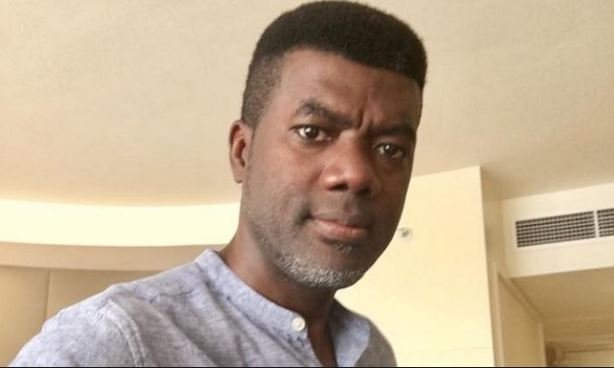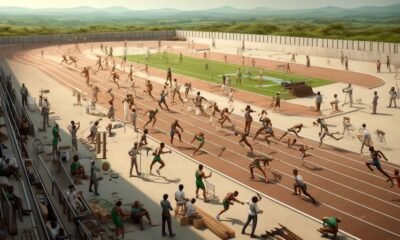News
COVID-19: The Anathema of a long vacation for the courts – Osaro Egbobamien SAN

By Osaro Egbobamien SAN
The world is repositioning on the front foot to begin what is sure to be a long and painful economic recovery from the devastating COVID-19 pandemic. Many countries, including Nigeria are teetering on the verge of a recession.
Naturally, our leaders are anxious to get people back to work from the forced eight-week vacation without pay that has put many businesses and even public services in jeopardy.
It has been a management of crises, helping to ascertain true leaders, as well as shapely redefining fault lines in politics, law and economics.
Law stands on a special pedestal and has been greatly demeaned in Nigeria principally because of its abstract nature. Perceived not just as a mere set of rules to adjudicate dispute, but a realm through which individuals are connected to one another and to the larger society, it has received its most devastating blow, ironically by those charged with administration of justice at the highest level. As at date, there is yet no indication that the annual vacation in July/August will be suspended, to make for otherwise productive time lost in the period of the COVID-19 induced holiday.
The Justice Reform Project (JRP), like other civil society organisations, has not been silent through the pandemic, and now facing its aftermath. It has called for and recommended the suspension of the annual vacation of the courts to recover time lost to the pandemic response initiative.
A commonsensical step it would seem, given the events of the past eight weeks, however, in Nigeria, we are often polarised along self interest, while the national interest takes a remote seat in evaluation. As in the call for virtual hearing, the call to suspend the annual vacation is likely to play to a typical stereotype. Annual vacation is statutory, and the various Chief Justices are constitutionally empowered to prescribe vacation dates. So, it may be argued disingenuously that it will be unconstitutional to suspend the annual vacation, just as it is contended it is unconstitutional to access the courts virtually.
This argument falls flat. The response initiative to the contagious nature of the viral disease, the Quarantine Act has necessitated the indirect suspension of the most fundamental part of the constitution.
The right to freedom of movement, right to freedom of association, right to engage in certain contracts and the entire right to liberty have all been impeded.
You need the law to redefine these parameters. Any inhibition in the Constitution, for instance to virtual hearing (although I find it difficult to locate any) or constraints to access justice could easily have been accommodated within Quarantine Act.
The failure to have done so, is a lack of appreciation that law constitutes a set of values upon which important part of our society is predicated.
To proceed on annual vacation would almost mean we do not appreciate the role of a justice system in the daily life of the people it serves. And the absence of any clarity on the subject as at date, further undermines confidence in a sphere where time, scheduling and preparation is of essence.
COVID-19 seems to reveal a fallacy that in Nigeria we can exist without law.
Proceeding on annual leave in the current climate is to compound our misconception and tilt us towards a Hobbesian state of nature where there is no common authority to restrain the arbitrary exercise of power by those who wield it.
In the end, all who seek justice suffer disillusionment, and consequently, resort to self-help.
It is a mistaken belief to think that in the absence of a formally sanctioned justice system, society has ground to a halt. Nature abhors a vacuum and so the formal justice system has no doubt been supplanted by a shadow system that has kept ostensible peace and provided remedy.
Illegality has its own structures and appeals to a desperate population who crave certainty in their dealings, and solutions to problems that arise daily. This could be in the form of rogue government agencies and officials who act as mercenaries sworn to the highest bidder Or warlords and ‘area boys’, who though boasting only a crude alternative to formal systems, may be at least capable of some consistency and dependability.
These revelations may tend towards the unfortunate conclusion that even our functional justice system provides no real justice and so is not missed by either those who dispense it, or those who are supposedly served by it, when absent.
The parallel system of illegality seems to provide more succour than the rule of law. Other nations around the world have reacted decisively to the forced holiday brought on by the pandemic.
Those from which Nigeria borrowed much of its constitution; notably, America, Australia, and India, have taken their justice online by swiftly instituting virtual hearing of matters. The common law upon which our system is modelled is also in this company. So, while their economies have hobbled along, they have at least made some progress to boast of.
For us, COVID-19 has painfully exposed our superficial justice system by exercising discretion to stay closed, and considering another 6 weeks holiday, the authorities are painting the rule of law as only an option, among a suite of options for ordering
(a disorderly) society.
This is exacerbated by their comfortable detailing of all the inhibitions that will not allow for the system to operate, without providing any alternative. Any service that fails to evolve to meet the times, will die of natural causes. We are now providing the palliative care to make the demise of our own justice system more comfortable. Lawyers also earn their living from the courts, and it is better left to the imagination the lengths that necessity will drive otherwise brilliant and hardworking practitioners to.
Still, we are not without heroes. Civil society, and the Bar must be commended for taking a
charitable stand.
Acts of charity and raising awareness of the needs of the most vulnerable among us, are never in danger of becoming outdated.
While this charity disposition must be commended, it is certainly not the solution. The Bar must in addition stand up, to ensure that the administration of justice remains effective, efficient, and effectual. It ought to be at the vanguard calling for virtual hearing and a suspension of the annual vacation. We do a disservice to whatever faiths we profess and our collective conscience by treating this crisis as one that can be solved with hand-outs. Africa has never known true development from foreign aid.
It is criminal to give only temporary panacea when the means to advance towards a lasting solution lies within our power. Perhaps those who are paid from taxpayer funds, could take a cue from the shop owners, vulcanizers and artisans who know too well that if you do not find a means to provide a service, not only the receiver of the service suffers, you the provider of the service are soon forgotten.
If the courts will not use the regularly scheduled annual vacation to recover lost ground and insist on business as usual at the cost of taxpayers, confirmation should at the very least be provided sooner and not later to ensure stakeholders are not taken unawares. Contingencies will need to be out in place.
When we look back as a nation after COVID, what lasting innovation, can we say it has brought out of us? Beyond individual acts of charity, I am yet to find a satisfactory answer. Unfamiliarity with technology may be a disincentive to senior judicial officers to move to virtual hearings, however that is no reason to hold the country to ransom over what could be cured by temporarily employing school leavers and undergraduates to guide their Lordship through the process.
As we prepare for a post COVID world, with all the uncertainty that portends for domestic and international commerce, those who will succeed are those who are able to come out different from how they went in. Any country, or individual for that matter, who emerges without a new skill or two; a new trick or two to avert or mitigate the impact of future crises, would accurately be described as a failure. Let us rise above our natural proclivity for intellectual debates during times of action.
Other nations are finding solutions or at worst, identifying markers for what a new normal could look like and the changes that need to be made. We will have no one to blame but ourselves if we fail to do the same. The annual vacation for 2020 must be suspended immediately!!!









